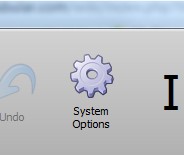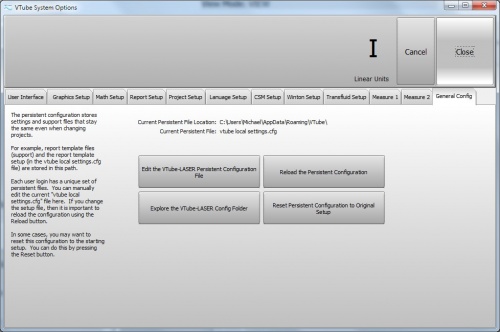Difference between revisions of "VTube Report Template Location"
(→STEP 2 - Click on the Far Right Tab) |
|||
| Line 34: | Line 34: | ||
====STEP 2 - Click on the Far Right Tab==== | ====STEP 2 - Click on the Far Right Tab==== | ||
This tab will be named either General Config, or Persistent Setup. | This tab will be named either General Config, or Persistent Setup. | ||
| + | <br><br> | ||
| + | Click on the "Explore VTube Config Folder" button. | ||
</td> | </td> | ||
<td width=300> | <td width=300> | ||
| Line 45: | Line 47: | ||
<tr valign=top> | <tr valign=top> | ||
<td width=300> | <td width=300> | ||
| − | |||
| − | |||
====When NOT to Use Damping==== | ====When NOT to Use Damping==== | ||
Revision as of 16:42, 5 March 2013
|
Contents |
Follow these steps to locate the Report Templates filesSTEP 1 - Click on System OptionsThis will take you into a window with several tab menus. |
|
STEP 2 - Click on the Far Right TabThis tab will be named either General Config, or Persistent Setup.
|
When NOT to Use DampingDamping is not helpful if your tube does not have the characteristic shape shown above. If the tube you are measuring does not have short straights that are basically "jogs" or offsets in longer sections of tubes, then you should turn damping off by unchecking the damping check boxes and/or ignoring all damping report data.
|
Other Pages
- Back to VTube-LASER




